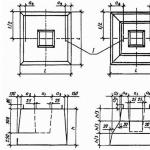KLIMOV Evgeny Aleksandrovich - Corresponding Member of the Academy of Sciences of the USSR, professor, author of many works on the problems of labor psychology, psychology of professions, career guidance
Reviewer: Leites N. S., Doctor of Psychology
Klimov E. A.
K49 Psychological and pedagogical problems of professional consultation. - M .: Knowledge, 1983. - 96 p. - (New in life, science, technology. Ser. "Pedagogy and psychology";
Work on the professional orientation of young people is an important link in communist education. The teacher, according to the logic of his activity, turns out to be a person from whom competent advice on choosing a profession is expected. This brochure aims to equip the teacher with certain means (informational, methodological) so that he can competently and competently participate in designing the professional fate of his students.
For secondary school teachers.
BBK 74.212.0 331.65
@ Publishing house "Knowledge", 1983
ABOUT THE SPECIFICITY OF THE THEORY OF PROFESSIONAL CONSULTATION
It should be noted right away: the problems of information (scientific and methodological) support for the practice of vocational guidance and vocational consultation are so clearly related to the field of social norms that the reader, brought up in the spirit of the ideals of natural science thinking, can give the impression of illogicality, non-science.
Indeed, the fruit of the work of a psychologist-practitioner or teacher in the role of a professional consultant may be the following statement: “You are better suited for professions that require frequent contact with people, and less suitable for those that require working mainly with technology. But if you still choose the field of technology that you have previously outlined, then you will need to take care of developing in yourself spatial ideas and psychomotor, that is, motor, culture. Failing that, the back-up, professional plan may be as follows...” Such statements cannot be tested for “correspondence to reality” except as a result of tracing a life path. But they are needed not at the end, but at the beginning of the journey, or rather. before embarking on this path. And during this period they just cannot be assessed either as true or as false.
Moreover, we have to admit that very many statements in the field of interest to us cannot be considered as true or false. For example, when advising a person choosing a profession, we are guided by the statement: “It is necessary that a person, having chosen a profession, not only be able to successfully cope with work, but be satisfied (with work, social environment, lifestyle)”. So it may be, so it must be. Well, if that happens. You need to strive for this, even if it is not easy. But is this statement true or false? On the contrary, if we asked: “Is it good that the boiling point of water depends on pressure?”, then this statement can be considered as true, but it makes no sense to subject it to assessments like “good”, “bad”, to consider it from the point of view of must - “should”, “should”.
But if many positions in the field of professional consultation cannot be considered within the framework of the “true-false” dilemma, then from here it is one step to the conclusion that this area is not science, that there is “little science” here. The matter is complicated by the fact that occupational counseling by its nature involves forecasting and, thus, always runs the risk of looking like a fortune-telling.
Of course, if we analyze the above statement of an imaginary professional consultant, we will see behind it some supposed dependencies that can be expressed in the form of conditional propositions typical of any “rigorous” science: “if A, then B”. Namely, we can assume something like: “If people are sociable and at the same time their spatial representations are poorly expressed, then they have greater success and satisfaction in the field of interpersonal relations than in the field of technology. This statement is statistically significant and thus can be considered as true with a high degree of probability, that is, true for most of these cases. It is even possible that this dependence is no more vague and empirically no less justified than some statements of statistical physics. However, the physical world is completely devoid of realities like social norms, while the latter play a huge role in the practice of vocational counseling and give the corresponding field of knowledge a specific look: "Something not very similar to science." This is so, if we take any particular expression of it as the standard of science.
From a purely physical point of view, a person has a lot of degrees of freedom. Not only can he go “on all four sides”, go down underground or fly, but he is also physically unlimited in biting the oncoming ear or throwing a shoe through an open window. Nevertheless, he does not naturally carry out these last actions, but behaves in accordance with certain conscious rules, estimates, norms, which in themselves cannot in any way be derived either from the structure of his organism or from the objective environment, but are already a function of the system. "man - society".
For example, eighth-grader excellent student Katya T. parted ways with the prospect of teaching in the ninth grade and is preoccupied with choosing a profession (she intends to enter a technical school). And this does not follow from a psychophysiological diagnosis or self-assessment of abilities, but from the fact that “grandmother is already old, and it’s hard for mom,” but there is no father. A “good” theory should cover everything, in particular, and such cases. But in the analysis of such cases, the logical consequence proceeds not in the usual “scientific” (“Aristotelian”), but in the so-called modal logic 1 . This is the main circumstance that gives rise to the peculiarities of theoretical knowledge in the field of vocational counseling.
Brochure dedicated to individual professional advice. Nevertheless, at the beginning, general questions of vocational guidance as a complex social problem, far beyond the competence of psychology proper, are considered in comparative detail. This is done on the obvious grounds that a part (vocational counseling issues) cannot be properly understood outside the larger whole.
Psychological and pedagogical professional consultation should be preceded by a medical one (which does not exclude the subsequent interaction of a teacher, psychologist, doctor, and possibly experts in the world of professions). However, only the title subject 2 will be discussed below.
1 Modal logic as a branch of science deals with the analysis of thinking using the concepts of “necessity”, “possibility”, “permission”, “prohibition”, etc. An example of modal reasoning: “It is not forbidden - therefore it is allowed”.
2 Orientation in medical issues of choosing a profession can be compiled by studying the book: Levin V. M., Rutenburg E. S. Vocational guidance and medical professional consultation of adolescents. L., 1977.
Klimov E. A. Psychology of a professional. - M.: Publishing house "Institute practical psychology", Voronezh: NPO "MO-DEK", 1996 - 400 p.
Table of contents.
Author's preface.
WORKS ADDRESSED TO NON-PSYCHOLOGISTS.
Psychology for professional pedagogy.
Individual approach to training workers in the production of new methods of work.
The match between excellence and individual style of work.
Identification component in practical work.
Algorithmization of training in professional and labor actions and individual characteristics of a person.
The main problems of psychology in connection with the tasks of vocational education.
On the structure of the environment of the subject of activity.
To information and psychological support for a novice professional.
About professional identity.
about professional suitability.
Mind as reality. Mental regulators of behavior.
A developing person in the world of professions.
Pre-professional development of the subject. Labor and Leadership of professional self-determination.
Psychological features of a teenager and some issues of labor education in the family.
General network model for the development of the complex problem "Vocational Guidance".
The right choice of profession and the methodology of professional consultation.
General characteristics of the state and tasks of scientific research on the complex problem of "Vocational guidance".
A high school student about choosing a profession.
Man and his profession.
Experiment and psychological and pedagogical professional consultation.
Psychological content of labor and issues of education.
On the principles of preparing young people for work and choosing a profession.
Some general questions.
Social and biological in the context of the problem of formation of professional suitability.
On historically specific forms of fixing psychological knowledge.
Professional mentality and psychoecological hypothesis.
WORKS ADDRESSED TO THE PSYCHOLOGICAL COMMUNITY.
On the approaches to the individual typological features of a professional.
On the question of the role of individual characteristics of the intellectual sphere in production work.
individual differences in labor activity multi-loom weavers in connection with diagnostic tests of the mobility of nervous processes.
Some features of motility and connections with typological differences in the mobility of nervous processes.
On some manifestations of the teacher's individual style.
A bit of history and some general questions.
Labor psychology as a field of knowledge, branch of science, academic discipline and profession.
Psychological knowledge about labor in the works of M. V. Lomonosov.
The Panicles Hypothesis and the Development of the Psychologist Profession.
A remark about the structure of professionalism and the professional.
Notes.
In the textbook, labor is considered in the broad sense of the word: as the consciousness of not only material values, as the production of scientific, artistic information, but also as the ordering of social processes.
Special attention draws on the originality of the psychological content of labor in different types of professions. The issues of establishing the optimal state of requirements and personal qualities of a person are discussed.
History of labor psychology in Russia
The manual examines the system of psychological ideas about labor and the worker, reconstructed on the basis of the monuments of the material and spiritual culture of our people in different periods his stories ( Ancient Russia and the Middle Ages, XVII, XVIII, XIX centuries, the beginning of the XX century).
The material is covered for the first time from a historical and psychological standpoint and significantly complements and partly changes the prevailing views on the emergence and development of domestic and Soviet labor psychology and related branches of psychology.
Fundamentals of psychology
Any specialist expects situations when he has to bring ideas, intentions, moods to the consciousness of others (seek mutual understanding, teach, lead).
No less important is the good regulation of one's own inner world and self-improvement on a scientific basis.
Psychologist. Introduction to the profession
AT study guide created in accordance with the Federal State educational standard in the direction of preparation 030300 - Psychology (qualification "bachelor"), contains information about the psyche, psychology, ways, means, methods of improvement and self-improvement of a person who has chosen the profession of a psychologist for himself. Organizational issues faced by first-year students are considered. Discussed possible mistakes allowed by them during their studies, recommendations are given for optimization academic work at the university.
For students of higher educational institutions students in psychological and pedagogical specialties. It may be useful for teachers, psychologists, as well as a wide range of readers.
Psychological diagnostics in personnel management
The training manual is addressed to HR employees interested in efficient use psychological tests in your daily work.
The book is based on the experience of psychodiagnostic practice of the authors in the personnel management services of commercial and government organizations, as well as the development of the department "Personnel Management" of the Institute for Advanced Studies of Civil Servants Russian Academy public service under the President of the Russian Federation.
Psychology as a profession
The proposed materials are designed primarily for those who are considering choosing the profession of a psychologist (or specialty, specialization). Namely, they, we hope, will help the interested reader to create or expand the preliminary orientation necessary in the case under discussion in the subject area and conditions of future labor activity.
The materials were collected and prepared for publication mainly by psychology students (many), who met with the relevant professionals, observed their work, talked, consulted with them (participants of the work are indicated at the end of each text). It is valuable that the descriptions presented reflect the professional optimism of students, their passion for their work, respect for teachers, as well as awareness of possible undesirable options. professional development contraindications to the choice of this field of work.
Psychology of a professional
Favorites psychological writings.
In this book from the series “Psychologists of the Fatherland. Selected Psychological Works” by the famous Russian psychologist Yevgeny Alexandrovich Klimov includes his works of different years devoted to the functioning and development of a person as a professional (realized or potential).
Vivid examples of the originality of the psyche, characteristic of different professionals, help to realize the importance of owning the world of psychic reality, the world of socio-psychological phenomena.
Psychology of professional self-determination
The tutorial addresses the issue professional self-determination young students and pedagogical guidance in choosing a profession with an emphasis on its psychological side. Ideas about various types of professions, projects of professional life paths are given, questions of the correspondence of a person to certain types of activity are considered. Particular attention is paid to mental development person in the process professional activity.
For university students studying courses developmental psychology and vocational guidance. It may be useful for students of institutes for advanced training of teachers, as well as for specialists involved in career guidance, vocational counseling, and assistance to persons in a situation of forced change of work.
Pathways to professionalism
The manual draws the reader's attention to the important issues of the life-building of a person as a professional, provides psychological information for reflection and independent decision-making.
The book says that there are thousands of different areas of application of mental and physical forces of people. And these are the parts of our world that are useful to know about; that the construction of a personal life path involves, in particular, the design by a person of desirable changes in himself.
Moscow: Academy, 2004 - 304 p.
The textbook reveals the problems of professional self-determination of young students and pedagogical guidance in choosing a profession with an emphasis on its psychological side. Ideas about various types of professions, projects of professional life paths are given, questions of the correspondence of a person to certain types of activity are considered. Particular attention is paid to the mental development of a person in the process of professional activity.
For students of higher educational institutions studying courses in developmental psychology and career guidance. It may be useful for students of institutes for advanced training of teachers, as well as for specialists involved in career guidance, vocational counseling, and assistance to persons in a situation of forced change of work.
Format: djvu/zip
The size: 3.08 MB
/ Download file
TABLE OF CONTENTS
Foreword
PART I. INITIAL "PRESETTINGS", REPRESENTATIONS AND CONCEPTS
Chapter 1. On the internal (psychological) difficulties in mastering the proposed course
1.1. Orientation difficulties
1.2. Difficulties in knowing the subject area under discussion
1.3. Life Path Dilemma
1.4. Self-determination and "psychological portrait" of a person in the public mind
Chapter 2. Professional self-determination: subject area, means, expected results of activity
2.1. Some general provisions
2.2. Professional self-determination of students from the perspective of a teacher, parent
2.3. Professional self-determination of students from the perspective of a doctor
2.4. Sociological, economic, legal aspects of the problem of professional self-determination
2.5. General idea of the system for ensuring professional self-determination
2.6. On the relationship between the concepts of "professional self-determination", "career guidance", "professional consultation"
Chapter 3
3.1. Ways to establish the correspondence between the personal qualities of a person and the requirements of activity
3.2. Individual style of activity as a way out of the conflict between the characteristics of the subject and the requirements of work
Chapter 4. Basic principles of professional self-determination
4.1. Principles of pedagogical guidance of professional self-determination
4.2. Some principles of self-education and self-regulation of a student in connection with professional self-determination
PART II. VARIETY OF PROFESSIONS AND THE SUBJECTIVE WORLD OF A PROFESSIONAL
Chapter 5. The concept of "profession"
5.1. Profession as a community
5.2. Profession as an area of application of forces
5.3. Profession as an activity and area of personality manifestations
5.4. On other terms characterizing the involvement of a person in professional work
5.5. Profession as a historically developing system
5.6. Profession as a reality creatively formed by the subject
Chapter 6
6.1. Overview classification of products of professional labor
6.2. On the set (socially fixed, "objective") and subjectively accepted by the professional goals of activity
6.3. On the diversity of internal conditions of activity
6.4. Overview classification of the conditions of professional activity
6.5. About the variety of means of activity
6.6. Overview classification of means of professional activity
6.7. Commonly significant and individually peculiar in the system of means and working conditions of a professional
Chapter 7 information support professional self-determination of youth
7.1. General provisions
7.2. First tier of classification. Occupation types
7.3. The second tier of the classification. Occupation classes
7.4. The third tier of the classification. Professions departments
7.5. The fourth tier of the classification. Occupation groups
7.6. The concept of "professional formula"
7.7. A variant of the survey classification of professions according to the characteristics of the subject area of labor and the form of necessary education
Chapter 8
8.1. General provisions
8.2. descriptive psychological characteristics types of professionals
"Man-nature" (P)
About representatives of professions such as
"Man-technique" (T)
About representatives of professions such as
"Man-man" (H)
About representatives of professions such as
"Man-sign system" (3)
About representatives of professions such as
"Picture Man" (X)
8.3. Some questions of the theory and practice of professional self-determination in connection with the professional relativity of a person's mental make-up
PART III. HUMAN DEVELOPMENT AS A SUBJECT OF LABOR AND PROFESSIONAL LIFE WAY
Chapter 9
9.1. Preschool ontogeny
9.2. School ontogeny
Chapter 10
10.1. The problem of "destiny" or "man-made" professional life path
10.2. The general structure of the situation and the scheme for solving the problem of "choosing a profession"
Chapter 11 life path professionalism and normal developmental crises
11.1. Some general provisions
11.2. Biographical crises
11.3. The main options and phases of professional development
Conclusion
Application. Approximate short descriptions professions for vocational education of students
Professions like "Human-wildlife"
Professions such as "Man - technology and inanimate nature"
Professions like "Man-man"
Professions of the "Man-sign system" type
Professions like "Man-artistic image"
Psychology of professional self-determination- Klimov E.A - 2004
The textbook reveals the problems of professional self-determination of young students and pedagogical guidance in choosing a profession with an emphasis on its psychological side. Ideas about various types of professions, projects of professional life paths are given, questions of the correspondence of a person to certain types of activity are considered. Particular attention is paid to the mental development of a person in the process of professional activity.
For students of higher educational institutions studying courses in developmental psychology and career guidance. It may be useful for students of institutes for advanced training of teachers, as well as for specialists involved in career guidance, vocational counseling, and assistance to persons in a situation of forced change of work.
TABLE OF CONTENTS
Foreword
PART I. INITIAL "PRESETTINGS", REPRESENTATIONS AND CONCEPTS
Chapter 1. On the internal (psychological) difficulties in mastering the proposed course
1.1. Orientation difficulties
1.2. Difficulties in knowing the subject area under discussion
1.3. Life Path Dilemma
1.4. Self-determination and "psychological portrait" of a person in the public mind
Chapter 2. Professional self-determination: subject area, means, expected results of activity
2.1. Some general provisions
2.2. Professional self-determination of students from the perspective of a teacher, parent
2.3. Professional self-determination of students from the perspective of a doctor
2.4. Sociological, economic, legal aspects of the problem of professional self-determination
2.5. General idea of the system for ensuring professional self-determination
2.6. On the relationship between the concepts of "professional self-determination", "career guidance", "professional consultation"
Chapter 3
3.1. Ways to establish the correspondence between the personal qualities of a person and the requirements of activity
3.2. Individual style of activity as a way out of the conflict between the characteristics of the subject and the requirements of work
Chapter 4. Basic principles of professional self-determination
4.1. Principles of pedagogical guidance of professional self-determination
4.2. Some principles of self-education and self-regulation of a student in connection with professional self-determination
PART II. VARIETY OF PROFESSIONS AND THE SUBJECTIVE WORLD OF A PROFESSIONAL
Chapter 5. The concept of "profession"
5.1. Profession as a community
5.2. Profession as an area of application of forces
5.3. Profession as an activity and area of personality manifestations
5.4. On other terms characterizing the involvement of a person in professional work
5.5. Profession as a historically developing system
5.6. Profession as a reality creatively formed by the subject
Chapter 6
6.1. Overview classification of products of professional labor
6.2. On the set (socially fixed, "objective") and subjectively accepted by the professional goals of activity
6.3. On the diversity of internal conditions of activity
6.4. Overview classification of the conditions of professional activity
6.5. About the variety of means of activity
6.6. Overview classification of means of professional activity
6.7. Commonly significant and individually peculiar in the system of means and working conditions of a professional
Chapter 7
7.1. General provisions
7.2. First tier of classification. Occupation types
7.3. The second tier of the classification. Occupation classes
7.4. The third tier of the classification. Professions departments
7.5. The fourth tier of the classification. Occupation groups
7.6. The concept of "professional formula"
7.7. A variant of the survey classification of professions according to the characteristics of the subject area of labor and the form of necessary education
Chapter 8
8.1. General provisions
8.2. Descriptive psychological characteristics of types of professionals
"Man-nature" (P)
About representatives of professions such as
"Man-technique" (T)
About representatives of professions such as
"Man-man" (H)
About representatives of professions such as
"Man-sign system" (3)
About representatives of professions such as
"Picture Man" (X)
8.3. Some questions of the theory and practice of professional self-determination in connection with the professional relativity of a person's mental make-up
PART III. HUMAN DEVELOPMENT AS A SUBJECT OF LABOR AND PROFESSIONAL LIFE WAY
Chapter 9
9.1. Preschool ontogeny
9.2. School ontogeny
Chapter 10
10.1. The problem of "destiny" or "man-made" professional life path
10.2. The general structure of the situation and the scheme for solving the problem of "choosing a profession"
Chapter 11
11.1. Some general provisions
11.2. Biographical crises
11.3. The main options and phases of professional development
Conclusion
Application. Sample career briefs for student vocational education
Professions like "Human-wildlife"
Professions such as "Man - technology and inanimate nature"
Professions like "Man-man"
Professions of the "Man-sign system" type
Professions like "Man-artistic image"
Free download e-book in a convenient format, watch and read:
Download the book Psychology of professional self-determination - Klimov E.A - 2004 - fileskachat.com, fast and free download.




